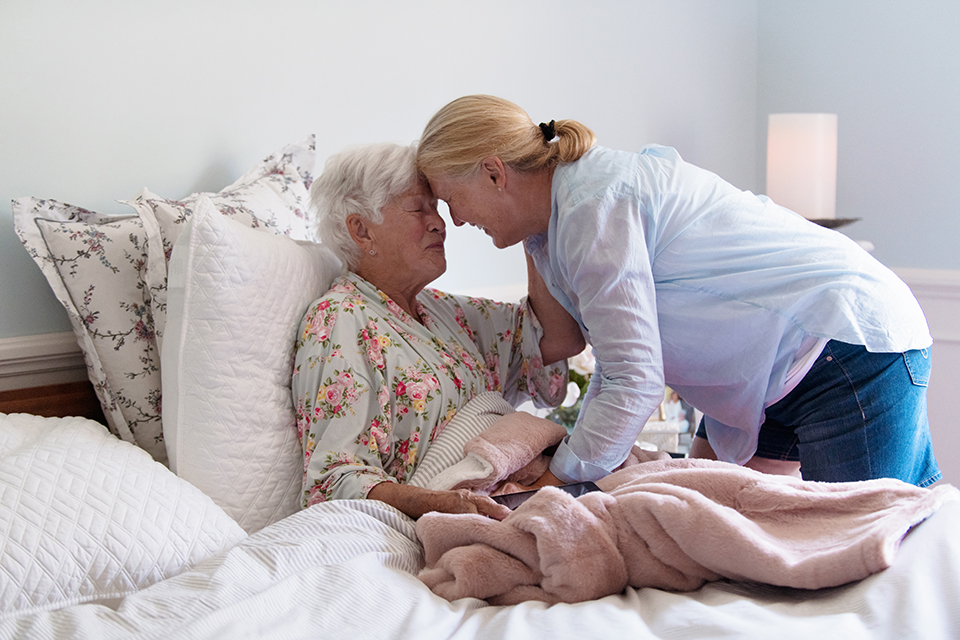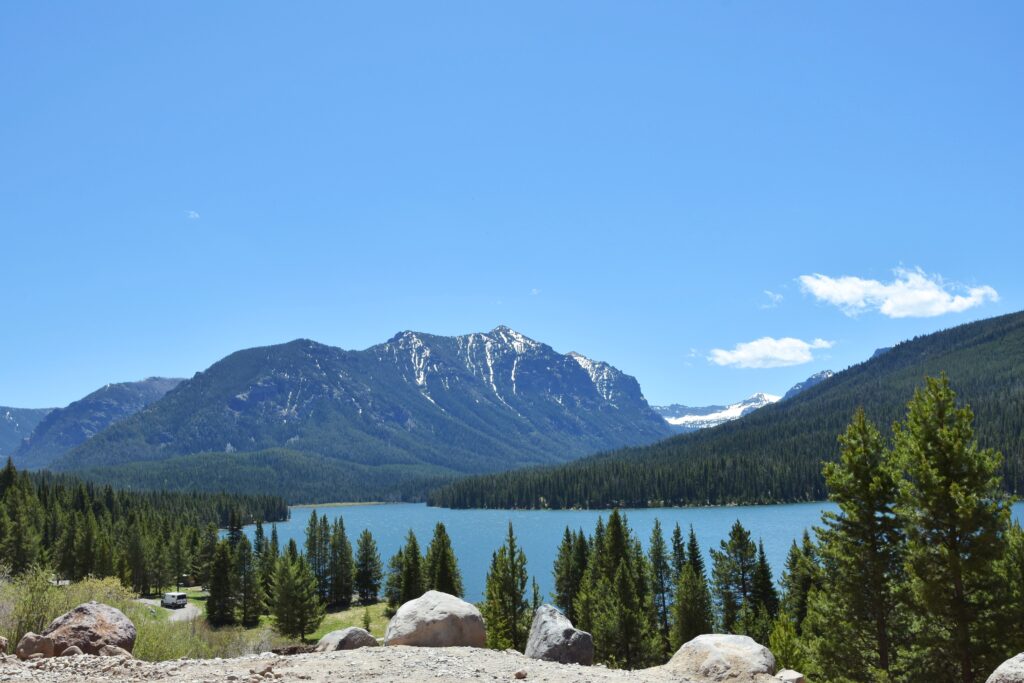Montana Hospice Care: How to pay for Hospice Care, Licensing and Regulations, and Questions to ask
In Montana, hospice care is designed to offer supportive, compassionate care to individuals facing a life expectancy of six months or less due to a terminal illness. The goal is to alleviate the stress of continuous care and create a comforting environment for patients and their families during life’s final chapters.

What is Palliative care and respite care and how are they different from hospice?
Let’s discuss what makes them different:
Palliative Care
Palliative care refers to any care that alleviates symptoms, whether there is hope of a cure by other means or not. Both palliative care and hospice care are intended to provide comfort for the individual and family. This care focuses on easing pain and discomfort to help people have the highest possible quality of life. It is appropriate at any stage of life, not just end of life.
Respite care
Taking care of a loved one who is terminally ill can be exhausting and emotionally draining for family members, and especially if family members are the caregivers. Respite care provides relief for those looking after the terminally ill individual. They may be checked into temporary hospice and provide a much needed break for family caregivers.
Hospice
Hospice care is an option for people who have a life expectancy of six months or less. In place of ongoing curative measures, hospice involves palliative care (pain and symptom relief), enabling the individual to live their final days with purpose, grace, dignity, and support from family and staff. The purpose is for the individual to spend their final days in a comfortable, familiar environment, with their loved ones enabling them to focus their attention with help of staff. Some hospitals, nursing homes, and other health care facilities offer hospice care on-site – however, it is most often provided in the person’s home.

Laws and regulations for hospice care in Montana
In Montana, hospice care facilities and services are subject to regulations at both the state and federal levels to ensure the highest quality of end-of-life care for patients. Montana has its own set of rules and requirements that hospice care providers must adhere to, in addition to federal guidelines.

Federally, Medicare’s hospice benefit regulations stipulate the following:
- Hospice care providers must be licensed to operate in the state of Montana.
- The patient receiving care, along with their family, must be fully informed of their terminal condition.
- Any additional medical treatment and intervention should be solely on a supportive basis.
- Pain control should be readily available to the patient as needed.
- Trained volunteers should be available to provide additional support as required.
State Regulations:
Montana has specific state regulations addressing the requirements for hospices contracting with state Medicaid programs and outlining the rules pertaining to patients. For detailed information on Montana’s state-specific codes and how they apply to hospice care regulations, interested individuals can refer to the official state website or healthcare regulatory bodies in Montana
How to pay for Hospice Care?
Medicare, private health insurance, and Medicaid (in 43 states) covers hospice care for patients who meet eligibility criteria.
Private insurance and veterans’ benefits may also cover hospice care under certain conditions. In addition, some hospice programs offer healthcare services on a sliding fee scale basis for patients with limited income and resources. To get help with your Medicare questions call 1-800-MEDICARE (1-800-633-4227) or visit www.medicare.gov. Additional information about how to pay for hospice care can be found at the Public Policy Institute of the AARP.
Who Pays for Palliative Care?
Medicare, Medicaid, many insurers, and healthcare plans will cover the medical portions—physician and nurse services—of palliative care.
Veterans may be eligible for palliative care through the Department of Veterans Affairs. Check with your doctor and healthcare plan to see what insurance will cover in your particular situation. Unlike the comprehensive hospice benefit, there is no comprehensive palliative care benefit.
Questions about Hospice Care
Is Hospice only for those who have cancer?
No. It is for anyone with a terminal illness who has been given a prognosis by their doctor of six months or less.
Do only elderly people use these services.
It is for all age groups during the final stages of their life. The intention is to allow people to enjoy the closeness of family and a comfortable environment in the last stages of their life.
Do people on hospice die immediately?
This care does not hasten death. Though, studies have shown people often live longer than those with the same or similar illnesses who do not choose hospice.
Are all hospices the same?
The United States offers thousands of hospices. Most engage in Medicare, which requires certain services for the person in care. So, there is a standard operating procedure.
How can I afford Hospice care? Is it expensive.
Hospice care is covered by Medicare Part A, and your personal insurance.
Is Hospice is only provided in the individual’s home?
NO, Care is provided wherever the person is, which could be a long-term care facility or a hospital. Being take care of at home is always an option.
Resources and Links – Montana
Montana Office on Aging The Aging Service Bureau is housed in the Senior and Long Term Care Division under the Montana Department of Public Health and Human Services. The office is responsible for the administration of the Older American Act through the ten Area Agencies on Aging.
Area 2 Agency on Aging is an Adult and Disability Resource Center providing information and assistance to elderly individuals and adult individuals with a disability. They connect individuals to needed services, provide counseling on long term care needs, help with applications for assistance to various programs and help develop programs to meet the needs of local residents. Area 2 serves those in Judith Basin, Fergus, Petroleum, Wheatland, Golden Valley, Musselshell, Sweet Grass, Stillwater, Yellowstone, Caron, and Big Horn.
Area 5 Area Agency on Aging is an Adult and Disability Resource Center providing information and assistance to elderly individuals and adult individuals with a disability. They serve those in Beaverhead, Deer Lodge, Granite, Madison, Powell, and Silver Bow.
Missoula Aging Services Missoula Aging Services provides a wide array of programs and services for older adults, people with disabilities and those who care for them. As a one stop shop, comprehensive services and referrals are available (both an Area Agency on Aging and an Aging and Disability Resource Center). Programs include homemaker and respite services, hospital to home transitions, retirement services, personal consultations, help with Medicare/Medicaid/Social Security, transportation assistance, Meals on Wheels, liquid supplements, congregate (group) meals, farmers’ market coupons, veteran directed care, caregiver support groups, companions for older adults, hundreds of volunteer opportunities, certified local ombudsman (advocates), onsite resource library, community classes (Medicare workshops, training for caregivers, balance improvement), elder abuse prevention, and statewide Medicare fraud prevention.
Area 8 Agency on Aging It is the mission of Cascade County Aging Services to promote an enhanced quality of life for a diverse population of older adults residing in this community by providing a comprehensive and coordinated system of services such as information and assistance, Senior Medicare Patrol, State Health Insurance and Assistance (SHIP), congregate and home delivered meals.
Eldercare Locator This is a great resource to search for specific care in specific counties and cities. This database is a nationwide resource that connects older Americans and their caregivers with trustworthy local support resources. Connect with services such as meals, home care or transportation, or a caregiver education or respite from caregiving responsibilities. The Eldercare Locator is a public service of the Administration on Aging (AoA), an agency of the U.S. Administration for Community Living.
Medicare provides a search feature to find & compare providers near you, most senior housing and care providers are included on CareAvailability.com. Find & compare plans in your area. Determine if you qualify for premium savings
Medicaid offers information on how to apply for Medicaid, eligibility criteria, links to local state offices, and additional resources
The Alzheimer’s Association is the leading voluntary health organization in Alzheimer’s care, support, and research. Whether you are living with Alzheimer’s or caring for someone with the disease, information and resources are available.
Search other areas for Hospice Care
Not finding what you’re looking for? Take a look below.
